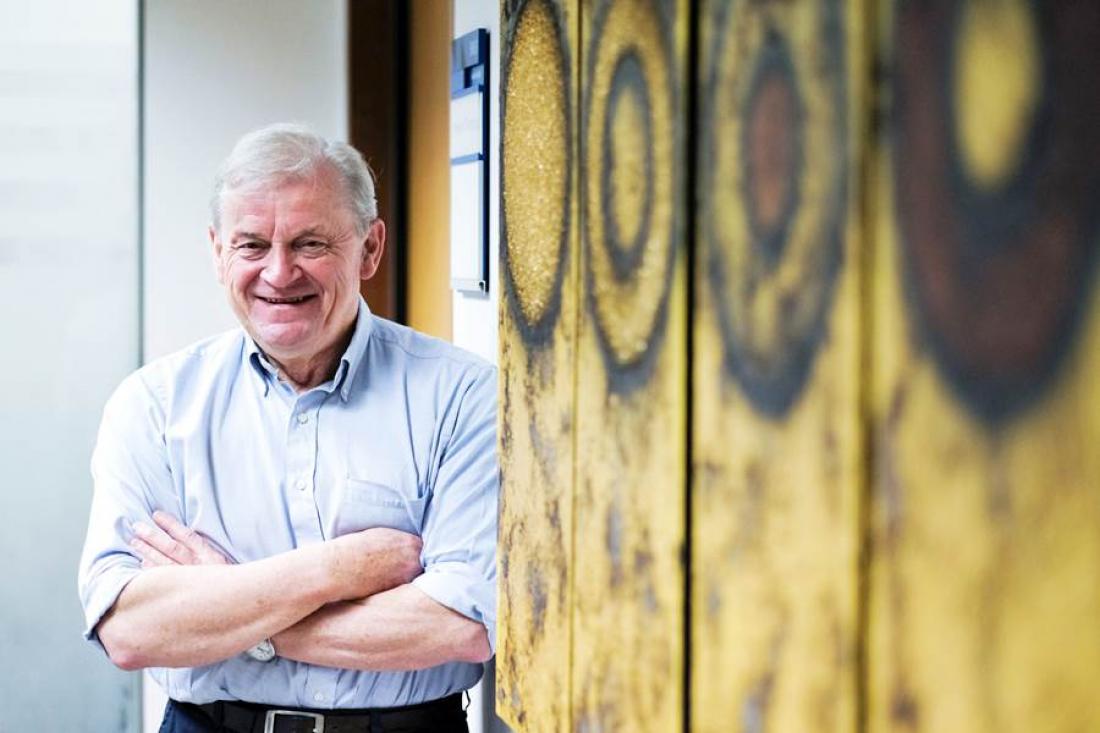Professor Howard Thomas
SMU Office of Research & Tech Transfer – For the individual, going to business school to get an advanced degree in management can mean better pay and job prospects. At the same time, the quality of management education can vary widely among countries, with business schools in the mature economies of the United States and Europe having the most well-developed programmes.
Recognising the need for a greater appreciation of the context and culture of the country each business school operates in, Professor Howard Thomas, the Lee Kong Chian School of Business (LKCSB) Distinguished Term Professor of Strategic Management and Management Education at the Singapore Management University (SMU), is conducting fine-grained research into adapting management education for non-Western audiences.
Drawing on nearly fifty years of experience in management education and hundreds of hours of extensive face-to-face interviews, Professor Thomas paints a picture of what business schools could be like in places like Latin America, Asia and Africa.
“What I have found is that the great mistake is for Europeans or those from the Western schools to believe that you can simply transplant a Western model into another culture,” he shares. “There is no meaning to education unless you understand the context and the culture that you're working in,” he stresses.
A dean on the move
For Professor Thomas, who served as the dean of LKCSB from 2010 to 2014, the insights he has gained from months of fieldwork in Africa came as a refreshing surprise. “It’s a different story than what I thought I was going to tell at the beginning, but that’s what research is about.”
Similarly, his own career has taken many interesting turns. Professor Thomas’ PhD degree is in statistical decision theory, and he spent the first decade of his career teaching and researching mathematical statistics before turning his attention to management education. “When I was in the London Business School in the early 1970s, my work was widened into strategy modelling and then subsequently, strategic management,” he explains.
Since then, Professor Thomas has not looked back, going on to teach strategic management from an analytical perspective in schools around the world. In 1990, he became dean at the University of Illinois Urbana-Champaign, before moving to Warwick Business School in 2000 to serve in the same capacity and finally to SMU in 2010.
“I’m a serial dean who has been dean of business schools in Europe, the United States and in the Asia Pacific region,” he shares. “When I was given a sabbatical after having done three deanships in a row, I took the opportunity to catch up on things that I really wanted to do, which for me was to go to Africa.”
Big ears, not a big mouth
“My passion is to tell a story about Africa that can provide a stimulus for a tremendous improvement in the quality of management education. This would help create economic growth and trade patterns that don't currently exist, namely more inter-regional trade in Africa and more global trade between Africa and the rest of the world,” Professor Thomas enthuses.
But before management education can hope to make an impact on the continent of Africa, business schools first need to understand that Africa is not uniform but a series of countries that are all different, he adds. “Even the physical distances between countries in Africa are enormous, quite apart from the social and cultural differences. We need to listen and learn from Africans, having big ears but not a big mouth.”
Visiting almost 20 African countries over 18 months of travelling, Professor Thomas and his co-author wife, Lynne, conducted around 100 interviews to get to know the management education needs of Africa. The result is Africa: The Management Education Challenge, a book presenting a framework for examining the African style of management education launched in June 2016. The book, which was supported by grants from the European Foundation for Management Development and the Graduate Management Admissions Council, will be joined by a second volume next year and both books will be distributed for free in Africa.
In addition to his work on Africa, Professor Thomas is also writing a book on the evolution of management education in Latin America. “They are two different studies about two different stages of evolution, the African one being more fundamental and the Latin American one being at least halfway towards a high-quality Western model. My work catalogues the two different waves of evolution of business schools that have to be seen in their context and culture and not simply as extensions of Western culture,” he says.
Get out of your comfort zone
Professor Thomas’ work on Africa also has implications for how business schools are run in Asia, he says. “There are parallels between Asian and African cultures, such as the strong dominance of family, the web of obligations and the communitarian spirit.”
Noting that 80 percent of the undergraduates at SMU currently have some kind of international experience – be it studying abroad for a semester, graded study trips or community projects around the region – he urges both students and faculty to get out of their comfort zones and look beyond developed countries to build a truly global mindset.
“The stories often told of Africa are of corruption and poverty. The truth of the matter is that some of that exists, but Africa is rising and its people are hungry for growth,” Professor Thomas states. “Understanding Africa will be a tremendously important aspect of being a global citizen, and I would like to persuade more and more people to work with African business schools as I do.”
By Rebecca Tan



